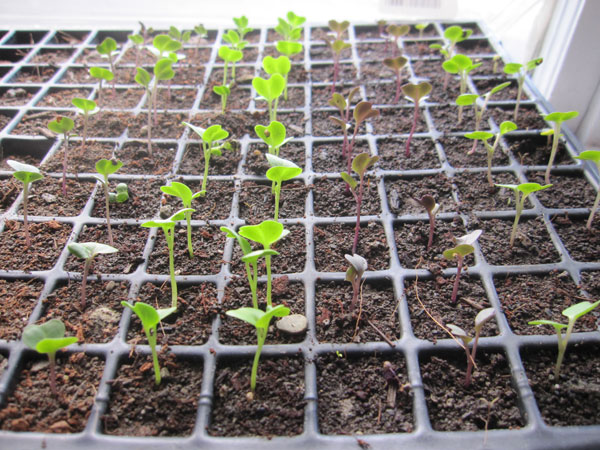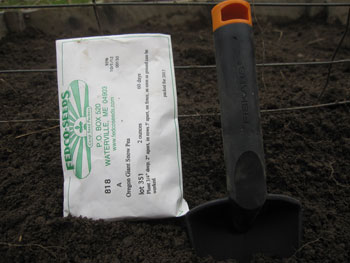

Snow has faded from the ground in most areas of Maine, giving us a clean slate to nurture this year’s garden. Taking a closer look, however, our slate isn’t actually clean, is it? All around the garden plant debris exists haphazardly, and it’s difficult to spot our precious dark soil underneath a layer of leaves, grass, and other wind-swept foliage. Though the sight of your garden may be discouraging, the sooner you clean it up the better off you’ll be in the season ahead.
I like to use a bow rake to drag all the loose (and the not-so loose) plant material out of the garden and consolidate into a pile. If you see any onions that you missed from last year, scoop those up too, along with anything else that hasn’t decomposed yet. By removing the pale plant debris, which tends to reflect sunlight, a gardener uncovers the dark, rich soil beneath. Dark soil has the ability to absorb more heat from the sun, allowing your garden to thaw at a quicker pace. As soon as your garden thaws, it’s time to get the hands dirty!
Though it’s nice to finally work in the garden after a long winter, a spring clean-up has more purpose than to satisfy the inner green thumb—it awakens the microorganisms in your soil. The sooner you uncover the dark topsoil the sooner you comfort the vast numbers of microbes that will hard the rest of the season. Do yourself a favor by doing them a favor! Once warmed-up, these little guys will turn organic material within your soil into ready-to-digest nutrients for your plants.

It’s important to note that the plant scraps we remove from our gardens during this process would have contributed to the health of the soil eventually (including nutrients and humus), but instead of waiting around for microbial life to digest the relatively fresh plant material, it’s a better idea to move it to where more rapid decomposition can take place: the compost pile.
Dead leaves, grasses, and weeds from last year are actually a valuable element in a successful compost pile. In order to have a healthy compost, a 25:1 ratio of carbon (brown items) and nitrogen (green items) should be maintained. In this situation, the dead leaves and dried-up plants serve as excellent sources of carbon, and if you mix in some grass trimmings the next time you mow your lawn, your compost will be in good shape.
Remember folks, take care of your garden and your garden will take care of you. So go outside, drink-in that fresh spring air, and give those gardens some attention!






I always end the season and start the season off by turning this organic material into the soil. Not only does it feed the microbial and invertebrate life, it helps my soil retain water. The more I feed my soil, the more it feeds me! By turning the soil early in the spring, it thaws/dries faster, so I can get my cool-weather crops in earlier.
Happy Gardening!
I don’t blame you a bit! though I like to use the organic material straight out of my composts to gain nutrients and water retention. A good tilling, however, is hard to beat in the fall for a number of reasons. good point, Bob!
It’s simply amazing how much quicker your garden becomes ready after you reveal that dark surface.